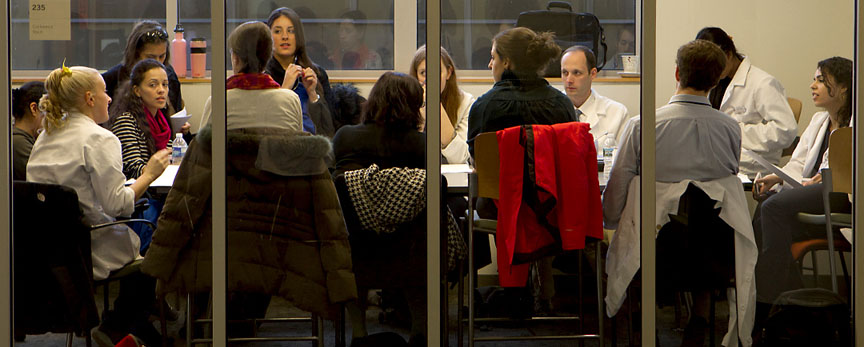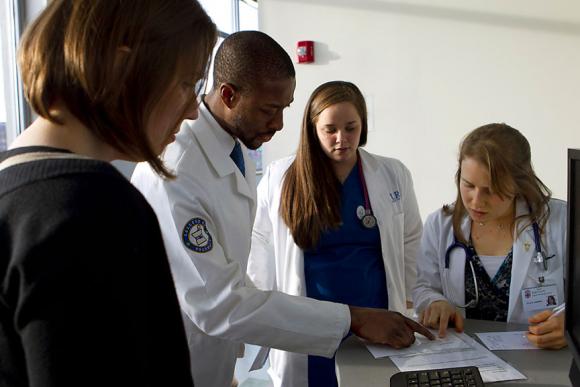PROVIDENCE, R.I. [Brown University] — Inside the exam room, a woman has pneumonia. Outside, three women and a man talk about her to come up with a plan to make her well.
The team — a doctor, a social worker, a pharmacist, and a nurse — discuss the notes from their interview with the ailing middle-age woman. Is she a smoker? Can she afford the antibiotics she will need? What other medicines is she taking? Does she encounter anything on the job that would make it harder to breathe?
They head back into the exam room with their plan. They present it to the patient and answer her questions, advising her to stop taking her iron-laden multivitamin because it could conflict with the antibiotic. Then time is up and the doctor, social worker, pharmacist, and nurse get feedback from an instructor.
In truth the team members won’t have those professional titles until they are done with school — and the patient, thankfully, isn’t really sick. She’s an actor playing a patient for the sake of an unusual workshop hosted by Brown University for more than 400 students from the Alpert Medical School, the University of Rhode Island’s nursing and pharmacy colleges, and Rhode Island College’s nursing and social work schools.
“Most fundamentally, they are learning how to work as a team with other health care professionals at an early stage in their training,” said Dr. Paul George, head of the Alpert Medical School’s second-year curriculum and the workshop organizer. When George was in training as a physician a decade ago, he said, he didn’t learn to work in these kinds of teams until he was on the job as a resident.
During other parts of the day similar groups of students convened around tables to discuss “paper cases” of other patients and their ailments. They had a lot to learn from each other’s developing expertise, but students mingled so naturally that one had to stare intently at the patches on the shoulders of their white coats to determine who was a pharmacist, who was a nurse, and who was a doctor — to be.


